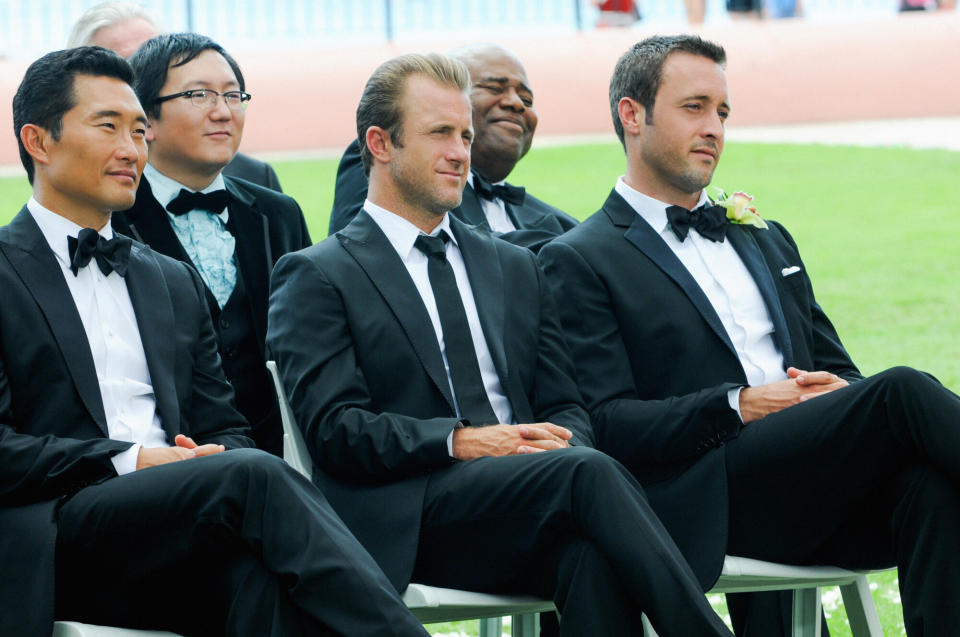Daniel Dae Kim Dishes About His 'Drastic' Pay Cut From 'Lost' To 'Hawaii Five-0'
- Oops!Something went wrong.Please try again later.
- Oops!Something went wrong.Please try again later.
Daniel Dae Kim is talking about his decision to leave the CBS show “Hawaii Five-0” in 2017, explaining in a recent interview that the “drastic” pay cut he took to do the show hasn’t “properly been reported.”
In an interview with Vulture published Monday, the 52-year-old Korean American star revealed a bit more about what went on behind the scenes when he left the police procedural show after seven years.
“One thing that has never really properly been reported is the amount of pay cut I took to do ‘Hawaii Five-0’ from ‘Lost.’ It was drastic, and it was never made up,” said Kim, who played Chin Ho Kelly on the show.
Earlier in the interview, Kim explained that he had hoped that, much like his time on “Lost,” “Hawaii Five-0” would be an ensemble show. He emphasized that “early marketing and promotion for the show” seemed to suggest he and fellow Korean American actor Grace Park would be “featured equally as prominently as anyone else.” He went on to say he was “proven to be wrong.”
Both Kim and Park, who played the character Kono Kalakaua, announced in 2017 ahead of the show’s eighth season that they would not be returning; reports at the time indicated pay inequity was the root of the problem. Variety reported then that Park and Kim had been making less than their white co-stars, Alex O’Loughlin and Scott Caan. CBS reportedly offered Kim and Park “10-15% lower than what O’Loughlin and Caan” made in salary.

While he didn’t give Vulture an exact number, Kim called the difference in pay between himself and O’Loughlin and Caan “significant,” adding that his goal at the negotiating table was simply to “make us all equal.”
“Make us all the ensemble that I thought we always were, and get me back to where I was with Lost. And I didn’t think that was an unreasonable position to take,” he said. “And the thing is, it wasn’t a source of conflict for me. It was very clear and simple. I was very transparent about it with my castmates, with my showrunner, with the studio from the start. It became much more dramatic because of the way that it didn’t come together.”
Despite that, Kim said he was “proud of the fact that we as a show hired a lot of Asian Americans.”
“I think we need to talk about the good with the bad. In terms of representation, we probably hired more Asian American actors than any other show over the same time span,” he stressed.
Pay inequity in Hollywood has long been an issue, predominantly with women and actors of color. A report in the Chicago Tribune broke down where some of that stems from ― an antiquated system based on how much experience an actor has had ― in 2019 on the heels of the success of the film “Crazy Rich Asians.” A report in Honolulu’s Star Advertiser perhaps summed it up best with a quote from actor and short-film maker Chris Tashima: “[Hollywood executives are] still stuck in a mid-20th century mindset. It’s the default for the creators of content to think ‘white’ when they’re thinking of stars.”
This article originally appeared on HuffPost and has been updated.

